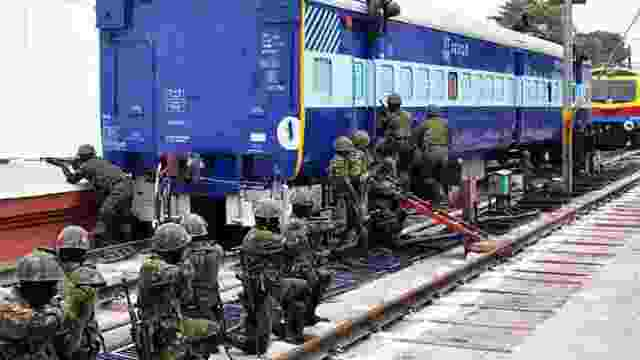Introduction to the Job Profile of a Technician (Signal) in Metro Rail
In the bustling world of Metro Rail, where thousands of commuters rely on trains for their daily commute, there's a silent guardian ensuring the smooth operation of these massive steel beasts—the Signal Technician. In this role, one becomes a vital cog in the intricate machinery that keeps the trains running safely and on time. Let's delve into the details of what exactly a Signal Technician does and why their role is so crucial.
1. Maintenance and Repair
At the heart of a Signal Technician's job lies the responsibility of maintaining and repairing the signal systems that govern train movement. Imagine a vast network of wires, circuits, and signals that must communicate flawlessly to ensure the safety of passengers and the efficiency of the rail system. Signal Technicians are the ones who keep these systems in top condition.
2. Inspection and Compliance
Safety is paramount in the world of rail transport. Signal Technicians conduct regular inspections and tests to ensure that all equipment meets stringent safety standards and regulations. From checking the integrity of track circuits to testing the responsiveness of point machines, they leave no stone unturned in their quest to maintain compliance and keep passengers safe.
3. Overhauling and Upkeep
Trains are complex machines with countless moving parts. Signal Technicians are tasked with maintaining, repairing, and sometimes overhauling various components of the rolling stock, including locomotives, wagons, and carriages. By ensuring that these vehicles are in optimal condition, they contribute to the reliability and efficiency of train operations.
4. Electrical and Electronic Expertise
Signal systems rely heavily on electrical and electronic components. Signal Technicians possess a deep understanding of these systems, from wiring and circuitry to advanced signaling technologies. They are the troubleshooters who can diagnose and fix issues with precision, ensuring that trains run smoothly without interruption.
5. Safety and Reliability
Every day, thousands of passengers entrust their lives to the Metro Rail system. Signal Technicians take this responsibility seriously. By diligently following safety protocols and promptly addressing any issues that arise, they play a critical role in maintaining the safety and reliability of train operations.
6. Independence and Self-Initiative
Signal Technicians often work independently, requiring a high degree of self-reliance and initiative. They must be proactive in identifying potential problems and taking swift action to resolve them. Whether it's responding to a signal malfunction or conducting routine maintenance checks, they are the unsung heroes who keep the trains on track.
In summary, the job profile of a Technician (Signal) in Metro Rail is a multifaceted role that involves ensuring the proper functioning of signal systems, maintaining compliance with safety regulations, and contributing to the overall reliability and efficiency of train operations. It's a job that requires technical expertise, a keen eye for detail, and a commitment to passenger safety. So, the next time you board a Metro train and reach your destination safely and on time, remember to thank the Signal Technicians who work tirelessly behind the scenes to make it all possible.


.jpg)


.jpg)
.jpg)
.jpg)
.jpg)
.jpg)
.jpg)

.jpg)
